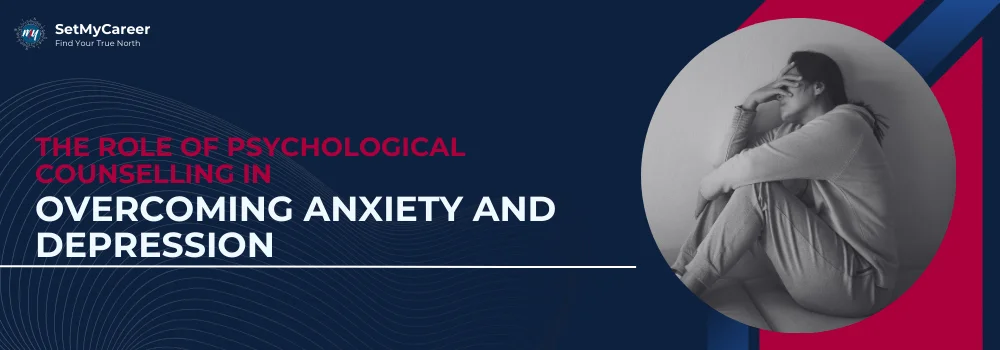Published by Jyothi Patil on 2 August 2024
Content Strategist | Editorial Team Member
Jyothi Patil is a skilled writer with a strong background in English literature, which she applies to crafting engaging content across various platforms. From writing blogs for her website and guest posts to creating pieces on Medium and Substack, Jyothi excels in making complex ideas easy to understand.
Exploring the role of psychological counselling can transform lives and address anxiety and depression.

Imagine feeling a weight lifted off your shoulders after sharing your worries with someone who truly listens. That's the essence of psychological counselling. In today's fast-paced world, many people face challenges with anxiety and depression. These mental health challenges can feel overwhelming, but psychological counselling offers a path to healing and hope.
Anxiety and depression can manifest in various ways, affecting our thoughts, emotions, and behaviours. They can lead to sleepless nights, a lack of motivation, and a sense of despair that seems impossible to shake. However, with the right support and guidance, it is possible to regain control and find a way forward. Counselling psychology is designed to address these complex emotions, providing tools and strategies on how to overcome anxiety.
Unfortunately, the stigma surrounding mental health issues often discourages them from seeking help. It's essential to recognize that experiencing anxiety and depression is not a sign of weakness but rather a common part of the human experience. Psychological counselling aims to normalize these struggles, offering a safe space for individuals to express their feelings without judgment. By seeking help, you take a crucial step towards mental wellness and a more fulfilling life. This blog explores the role of counselling in managing these conditions, highlighting the benefits and techniques that can help you or your loved ones find relief.
You might be familiar with the term “psychological counselling”, but for those who aren't, here's a quick rundown. What is Psychological Counselling? It’s a process where individuals collaborate with a trained therapist to tackle emotional, psychological, and behavioral issues. For those new to this concept, psychological counselling aims to help you understand your feelings, face challenges head-on, and develop effective coping strategies. In these sessions, you'll talk through your thoughts, emotions, and experiences, which can reveal deeper issues affecting your mental health.

Learn how counselling can guide you through these tough times
Start Your HealingHow to cope with stress and anxiety, psychological counselling offers a structured approach to support and healing. Let’s explore how it can assist in overcoming these challenges:
By working with a psychological counsellor, students, graduates, and professionals can gain valuable insights, develop coping mechanisms, and improve their overall mental health.
Psychological counselling is a powerful tool for overcoming anxiety and depression. By providing emotional support, practical strategies, and a deeper understanding of oneself, Career counselling and guidance can lead to meaningful and lasting change. If you or someone you know is struggling, consider reaching out to a psychological counsellor. Taking the first step towards better mental health is important. Explore our resources and find a qualified psychological counsellor to support you on your journey to well-being.
No. 14/595, 1st Floor, Nanjappa Reddy Layout, Koramangala 8th Block, Bangalore 560095